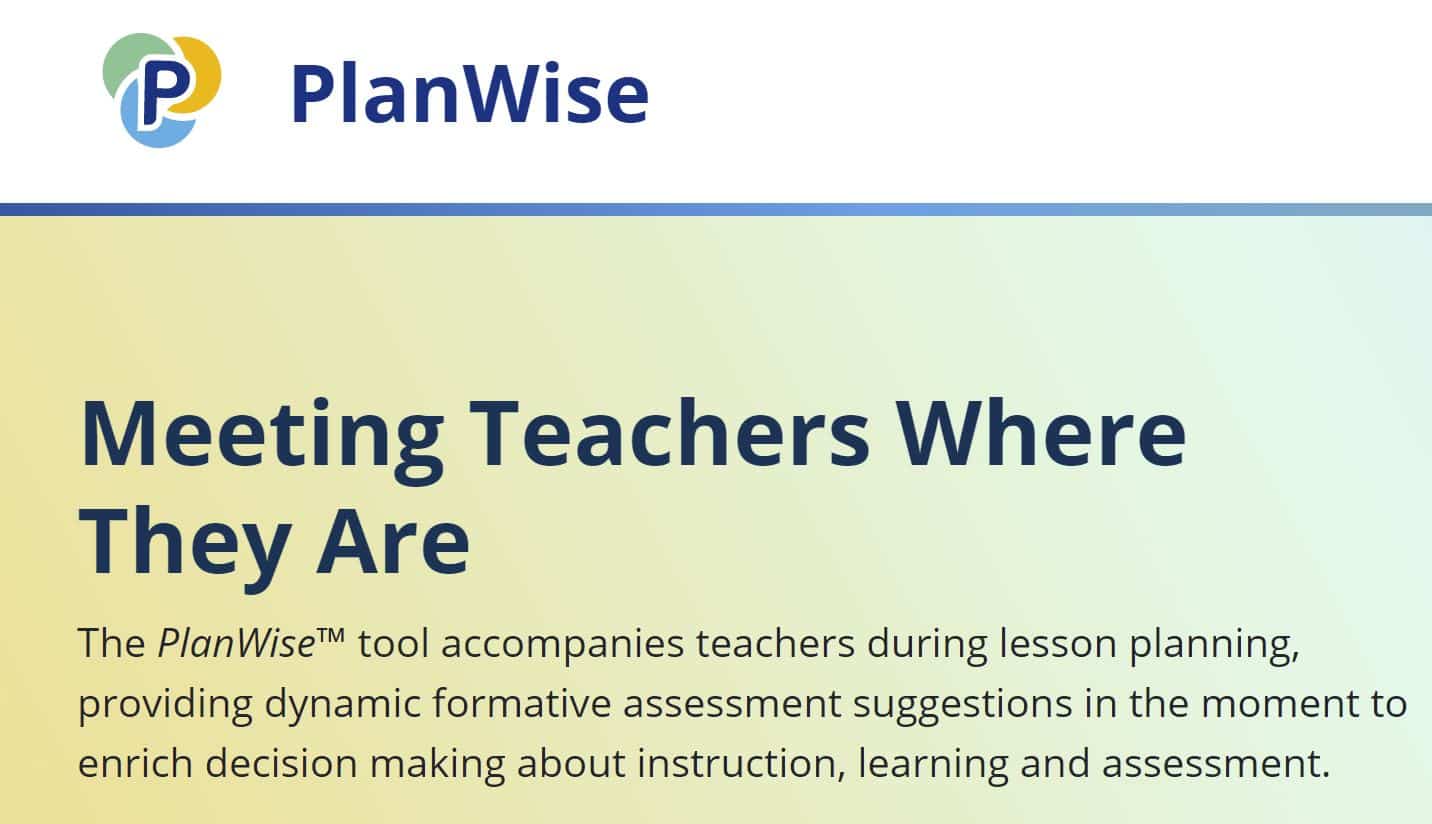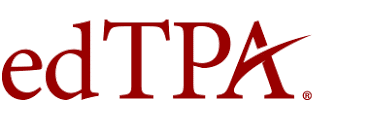06 Jul2021
By Jacqueline Rodriguez
 Don’t miss your opportunity to pilot test PlanWise™ tool, a Chrome Extension developed by ETS and focused on delivering formative assessment practices and strategies.
Don’t miss your opportunity to pilot test PlanWise™ tool, a Chrome Extension developed by ETS and focused on delivering formative assessment practices and strategies.
AACTE, in collaboration with ETS, is excited to provide all of its members with this exciting opportunity. The PlanWise™ tool meets teachers where they are in a number of ways, such as providing suggestions for formative assessment strategies to teachers and teacher candidates while they are lesson planning in Google Docs. After an initial pilot with K-12 teachers, novice teachers noted the value and the utility of the tool in identifying a variety of new formative assessment strategies and indicated that the strategies increased their use of formative assessment with students.
29 Jun2021
By Trisha DiZio and Jacqueline Rodriguez

There is wide recognition that history and civics have been neglected disciplines in American K-12 education. Recent events, including the January 6 insurrection of the U.S. Capitol, underscored this point and the need to elevate learning in these essential disciplines.
The Educating for American Democracy (EAD) initiative has garnered broad cross-partisan and stakeholder support as a way to re-imagine and re-prioritize the important civic mission of K-12 public education. AACTE became an EAD organizational Champion in 2021 and is developing professional development that addresses inquiry-based civic instruction in our member educator preparation programs. AACTE is participating in the upcoming webinar, Monitoring Civic Learning Opportunities and Outcomes: State of the Field and Future Directions, on July 13
22 Jun2021
By Jacqueline Rodriguez
 AACTE is excited to announce a new opportunity for members to pilot the PlanWise™ tool, a Chrome Extension developed by ETS and focused on delivering formative assessment practices and strategies. The PlanWise™ tool meets teachers where they are in a number of ways, including by providing suggestions for formative assessment strategies to teachers and teacher candidates while they are lesson planning in Google Docs. After an initial pilot with K-12 teachers, there is increased interest in expanding use of the PlanWise™ tool to teacher candidates. Many novice teachers in the initial pilot valued the utility of the tool in identifying a variety of new formative assessment strategies and indicated that the strategies increased their use of formative assessment with students.
AACTE is excited to announce a new opportunity for members to pilot the PlanWise™ tool, a Chrome Extension developed by ETS and focused on delivering formative assessment practices and strategies. The PlanWise™ tool meets teachers where they are in a number of ways, including by providing suggestions for formative assessment strategies to teachers and teacher candidates while they are lesson planning in Google Docs. After an initial pilot with K-12 teachers, there is increased interest in expanding use of the PlanWise™ tool to teacher candidates. Many novice teachers in the initial pilot valued the utility of the tool in identifying a variety of new formative assessment strategies and indicated that the strategies increased their use of formative assessment with students.
07 Jun2021
By Amy Carlson Gustafson

This article originally appeared on the University of St. Thomas Newsroom and is reprinted with permission.
The School of Education at St. Thomas is making inroads to increase the number of people of color who choose to become teachers, and national organizations are recognizing its efforts. In March, the school received notice that the Association of Colleges for Teacher Education (AACTE) accepted its proposal to be part of a consortium to increase equitable access to teaching.
Only around 6% of licensed Minnesota teachers identified as Black, Indigenous and people of color (BIPOC), while 38% of students in the state are nonwhite, according to state data. In efforts to help close that gap, the School of Education will join with other AACTE members to examine entrance requirements for teacher preparation programs. This collaboration exemplifies just one more way in which the school has been working to grow the number of diverse teachers through a variety of programs, including key partnerships.
06 May2021
By Rebekah Saylors
For the fifth consecutive year, Appalachian State University leads the nation for the number of its Reich College of Education (RCOE) alumni who are National Board Certified Teachers (NBCT).
The national certification is based on a rigorous performance-based assessment that typically takes from one to three years to complete and measures what accomplished teachers and counselors should know and be able to do.
The university topped the National Board for Professional Teaching Standards’ list of “Top 50 Alma Maters by Total Number of NBCTs” for 2020, with 2,178 alumni having earned the national credential to date.
05 May2021
By Weade James

AACTE is pleased to announce the selected states for the Consortium for Research-Based and Equitable Assessments (CREA), a new initiative supported by the Bill & Melinda Gates Foundation. The Consortium, comprised of 14 state teams that include educator preparation programs (EPPs) and their state and local education agencies, will evaluate cut scores for entrance into EPPs, and develop recommendations and model state policies to support state efforts to advance equity and recruit more diverse teacher candidates into the profession.
The 14 selected states and institutions include the following:
09 Apr2021
By Renée A. Middleton
This article originally appeared in the Opinion section of The Columbus Dispatch and is reprinted with permission.

I applaud Ohio University—together with more than half of four-year colleges nationwide—in adopting a test-optional pathway for admission for first-year applicants.
All institutions of higher education should lead the efforts to reverse structural roadblocks to potential students and provide access to the promise of an enriched life that education can provide.
For too long, standardized testing has been overused and misused in ways that either knowingly or inadvertently set up structures akin to institutional and structural inequities. Structural inequities consist of laws, rules or official policies in a society that result in and support a continued unfair advantage to some people—deep patterns of socioeconomic inequalities and disadvantage due to socioeconomic class or racism.
Though institutions of higher education should have standards for admission, they have an obligation to eliminate barriers for students and expand access to higher education. Newly proposed standards—such as those by the Council for the Accreditation of Educator Preparation—will succeed in this mission without negatively impacting academic quality or student
29 Mar2021
By Ann Marie Wernick
 The 73rd AACTE Annual Meeting held a Deeper Dive session focusing on the edTPA teacher performance assessment. This session illuminated a variety of ways edTPA is being used and the multiple goals it is intended to achieve, including, a standardized measure of program quality, a high stakes teacher assessment for licensure, a performance screen for teacher quality, a professionalization tool, and a curriculum development framework for teacher preparation programs (TPPs).
The 73rd AACTE Annual Meeting held a Deeper Dive session focusing on the edTPA teacher performance assessment. This session illuminated a variety of ways edTPA is being used and the multiple goals it is intended to achieve, including, a standardized measure of program quality, a high stakes teacher assessment for licensure, a performance screen for teacher quality, a professionalization tool, and a curriculum development framework for teacher preparation programs (TPPs).
AACTE’s new Board Chair Robert Floden, from Michigan State University, served as the moderator for the session and began by acknowledging outcome measures—such as edTPA—are used to measure teacher preparation quality for a variety of purposes including accountability, teacher learning, and program improvement. Further, he provided meaningful background about edTPA and how it was developed as an outcome measure that was closely related to teacher practice. Since 2013, edTPA has grown and been implemented in 41 states and the District of Columbia. This session pulled on the expertise of five researchers and highlights some of the affordances and barriers this performance assessment has for TPPs, teacher educators, and teacher candidates.
Cap Peck of the University of Washington began the session by recognizing there are both risks and opportunities associated with edTPA. In particular, he discussed the opportunity and value of using edTPA as a resource for program evaluation and improvement because it provides a common language to discuss practice, make comparisons, and see differences to make improvements within TPPs. He emphasized that in order to foster continuous improvement, organizational policies and practices need to support collective and collaborative program improvement.
Next, Drew Gitomer of Rutgers University discussed the need for a moratorium on the use of edTPA in the context of a high stake’s licensure exam. He drew on the failure to meet several key measurement expectations during his explanation for why edTPA should not be used for licensure. The three key components included
- Reliability is not reported
- Precision is not estimated in an acceptable manner
- Passing scores and passing rates are substantially different across licensure areas
Then Julie Cohen of the University of Virginia continued the conversation as she focused on the degree to which licensure tests, such as edTPA, inform teacher preparation curriculum. She discussed the complexity of this work, with a specific focus on implementation at the program
level and not at the institutional level. Further, she discussed equity implementations for candidates and the consequential ways variation between programs effects candidates in their programs and for licensure.
As the discussion progressed, Craig De Voto of the University of Illinois at Chicago discussed how TPPs have made sense of and responded to varied edTPA policy designs and contexts. He and his colleagues found that edTPA became a tool used for inquiry or compliance across teacher preparation programs. He proceeded to talk about the good, bad, and ugly findings from implementation of this tool. First, the good results they found were cross departmental collaboration, continuous program improvement, coherent foundation for field (e.g., academic language, teaching pedagogy, differentiation and assessment), and external legitimacy as a professionalization tool. The bad results they found were implementation challenges, particularly when mandated and philosophical challenges with equity and social justice. Finally, the ugly they found were divergent views of edTPA as a professionalization tool across the field with some teacher educators viewing it at as a de-professionalization tool.
To conclude the panel, Beth Kubitskey of Eastern Michigan University reflected on her experience implementing edTPA. She discussed her view of edTPA as a process that helped novice teachers provide a commentary linking their learning to their classes. Additionally, she and her colleagues were able to implement and use edTPA in a way that was educative for their students.
Overall, during the discussion, the panelists reiterated the many uses of edTPA and how it is being used across states and institutions. They further acknowledged the complexity of this work and the divergent responses and reactions by teacher educators and teacher candidates within institutions and organizations. At the end of the panel discussion, one participant asked, “Do you think this policy is a good or bad thing?” Fittingly, a panelist replied, “Well, it depends.”
Ann Marie Wernick, is a Ph.D. student at Southern Methodist University and AACTE research, policy, and advocacy intern.
23 Mar2021
By Lynn Burdick
 There is no doubt the COVID-19 pandemic has caused unprecedented challenges in education. At the University of Illinois (U of I) in Urbana-Champaign, we are facing a lot of those challenges. However, I am trying to be the glass-half-full girl by saying there are a few things we have implemented in these past 12 months that I would like to see us put in place to stay.
There is no doubt the COVID-19 pandemic has caused unprecedented challenges in education. At the University of Illinois (U of I) in Urbana-Champaign, we are facing a lot of those challenges. However, I am trying to be the glass-half-full girl by saying there are a few things we have implemented in these past 12 months that I would like to see us put in place to stay.
When this pandemic is behind us, what best practices should we keep?
Technology for Collaboration, Engagement and Assessment
As we gradually move back into face-to-face classrooms, I know many teachers are ready to put the Chromebooks away! However, some teachers are continuing—and will continue—to apply the new technology skills and tools they discovered during online learning as they return to in-person teaching.
There are so many options for collaboration with creative uses of tools like Jamboard, Google Workspace, Padlet, and so many more. Technologies such as these have helped students who might not contribute when everyone is face-to-face actively participate in online activities. Quick online formative assessment tools have also made it easier for teachers to “take the temperature of the room” and make informed instructional decisions based on individual student learning.
22 Feb2021
By Weade James

AACTE recognizes the challenges that many of our members are facing because of the recent winter storms. We believe that your safety and well-being are most important. As such, we are extending the application deadline for the Consortium for Research-Based and Equitable Assessments (CREA). The new deadline to apply is March 5 at 11:59 p.m. EST.
We appreciate the overwhelming interest that have been expressed to join the Consortium and hope that this extension will provide much needed respite to those impacted by widespread power and utility outages, and other challenges to their everyday needs. Given the new deadline, all applicants will be notified of their application decision on March 22, 2021.
Please direct any questions about the Call for Applications to me at wjames@aacte.org.
05 Feb2021
By Jacqueline Rodriguez

Educator preparation programs have experienced a tumult of change in the last 12 months. Many of our members have experienced decreased enrollment in initial licensure teacher education programs, all during a nationwide teacher shortage. Now, more than ever before, it is our responsibility to consider what may be creating barriers for candidates to enter our programs and our profession. AACTE plans to support member institutions’ examination of assessments used for entry into preparation programs and the barriers they create for potential candidates, especially candidates of color.
25 Jan2021
By Weade James
 AACTE is pleased to announce the Call for Applications for the Consortium for Research-Based and Equitable Assessments (CREA). Funded by the Bill and Melinda Gates Foundation, the purpose of the Consortium is to convene stakeholders across various states to (1) examine how cut scores for entrance into educator preparation programs are currently set, (2) identify guidelines and recommendations for setting equitable cut scores for Praxis I and similar assessments, and (3) develop model state policies that seek to attract and prepare diverse teacher candidates for the profession.
AACTE is pleased to announce the Call for Applications for the Consortium for Research-Based and Equitable Assessments (CREA). Funded by the Bill and Melinda Gates Foundation, the purpose of the Consortium is to convene stakeholders across various states to (1) examine how cut scores for entrance into educator preparation programs are currently set, (2) identify guidelines and recommendations for setting equitable cut scores for Praxis I and similar assessments, and (3) develop model state policies that seek to attract and prepare diverse teacher candidates for the profession.
The Consortium of state teams shall be comprised of educator preparation programs and representatives from state and local education agencies. Participants must commit to one full year of participation, which will include quarterly meetings and pre-work between meetings to accomplish the goals of the Consortium.
05 Jan2021
By AACTE
AACTE has launched a new initiative to examine state-level teacher certification assessment scores, with the goal to improve equitable and inclusive practices for promoting a diverse educator workforce. The initiative, funded by the Bill & Melinda Gates Foundation, will enable AACTE to develop national guidelines and recommendations for state education leaders in establishing criteria for equitable evaluations for teacher candidates seeking state licensure.
“Left uninterrogated, standardized tests of any sort tend to spur inequalities, rather than resolve them,” said Leslie T. Fenwick, AACTE dean in residence. “If entrance exams are decimating the ranks of prospective pre-service teachers of color, we have a moral and practical obligation to correct the outsized impact of these tests on the future of our profession.”
17 Dec2020
By Ruth Campbell
This article originally appeared in Odessa American and is reprinted with permission.
University of Texas Permian Basin’s new certification program in early childhood prekindergarten through third grade education has one semester in the books.
Dean of the College of Education Larry Daniel said they have 11 to 12 students in that major.
“It’s our first semester this fall, so we’re expecting that program to continue to grow. I know we’ve had a lot of inquiries but I don’t have a precise figure. … We are expecting that program to continue to grow and having teachers certified, particularly with the early childhood area,” Daniel said during a Zoom Early Childhood Action Network meeting this week.
ECAN is a committee of the Education Partnership of the Permian Basin. The Education Partnership of the Permian Basin is a nonprofit organization focused on supporting and improving the quality of education throughout the Permian Basin from cradle to career, its website said.
10 Nov2020
By Jane E. West
As of July 1, 2020 all universities were required to comply with 2019 federal state authorization regulations. Among the requirements in these complex regulations is one related to all programs that fulfill educational requirements of a profession that requires licensure or certification. Included among these programs are those in schools and colleges of education—for teachers, psychologists, school counselors and more. Every university with such programs is required to make public, for each state, whether the program does or does not meet such requirements. For example, a special education teacher preparation program at a university in Florida must disclose whether its requirements would lead to certification in Minnesota.
MSU determined to provide a university-wide compilation of program requirements in relation to state certification requirements rather than a college by college compilation. Who was involved? What is the utility of doing it this way?
At MSU, compliance with this requirement took a village and included substantial support from university-level offices. First, the General Counsel’s office and Registrar’s office worked with administrators from across campus to develop a plan for compliance with both these regulations and also the similar reporting about online programs required by NC-SARA. This group identified the sequence of necessary work and set out due dates for various pieces. Second, staff from the General Counsel’s office and Registrar’s office met as needed with individuals from colleges, in addition to continuing to meet with the ad hoc group that created the process. In response to a request from colleges, the university also took care of all the relevant notifications to current students, which was a great help.
 Don’t miss your opportunity to pilot test PlanWise™ tool, a Chrome Extension developed by ETS and focused on delivering formative assessment practices and strategies.
Don’t miss your opportunity to pilot test PlanWise™ tool, a Chrome Extension developed by ETS and focused on delivering formative assessment practices and strategies.










 The 73rd AACTE Annual Meeting held a Deeper Dive session focusing on the edTPA teacher performance assessment. This session illuminated a variety of ways edTPA is being used and the multiple goals it is intended to achieve, including, a standardized measure of program quality, a high stakes teacher assessment for licensure, a performance screen for teacher quality, a professionalization tool, and a curriculum development framework for teacher preparation programs (TPPs).
The 73rd AACTE Annual Meeting held a Deeper Dive session focusing on the edTPA teacher performance assessment. This session illuminated a variety of ways edTPA is being used and the multiple goals it is intended to achieve, including, a standardized measure of program quality, a high stakes teacher assessment for licensure, a performance screen for teacher quality, a professionalization tool, and a curriculum development framework for teacher preparation programs (TPPs). There is no doubt the COVID-19 pandemic has caused unprecedented challenges in education. At the
There is no doubt the COVID-19 pandemic has caused unprecedented challenges in education. At the  AACTE is pleased to announce the Call for Applications for the Consortium for Research-Based and Equitable Assessments (CREA). Funded by the Bill and Melinda Gates Foundation, the purpose of the Consortium is to convene stakeholders across various states to (1) examine how cut scores for entrance into educator preparation programs are currently set, (2) identify guidelines and recommendations for setting equitable cut scores for Praxis I and similar assessments, and (3) develop model state policies that seek to attract and prepare diverse teacher candidates for the profession.
AACTE is pleased to announce the Call for Applications for the Consortium for Research-Based and Equitable Assessments (CREA). Funded by the Bill and Melinda Gates Foundation, the purpose of the Consortium is to convene stakeholders across various states to (1) examine how cut scores for entrance into educator preparation programs are currently set, (2) identify guidelines and recommendations for setting equitable cut scores for Praxis I and similar assessments, and (3) develop model state policies that seek to attract and prepare diverse teacher candidates for the profession.